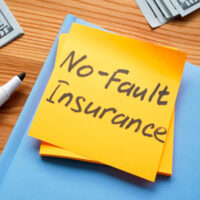What The No-Fault Insurance System Means For Your Car Accident Claim

Florida’s no-fault insurance system simplifies the process of handling medical expenses and lost wages after a car accident, but it is important to recognize that there are limitations on pursuing some types of damages. If you’re involved in a car accident and want to discuss how PIP coverage works and if you have additional paths for seeking compensation available, have a conversation with an experienced Miami personal injury lawyer to be sure that your legal rights are protected.
Basics of Florida’s No-Fault Insurance System
Following a car accident, the no-fault system means each driver’s own insurance company covers their medical expenses and certain other losses, regardless of who was at fault for the accident. There are elements of Florida’s system that allow this to happen.
- Personal Injury Protection (PIP). Drivers are required to carry Personal Injury Protection (PIP) insurance in the Sunshine State. PIP covers medical expenses, lost wages, and other related costs up to a certain limit, regardless of who caused the accident. There is a minimum coverage requirement, it is set at $10,000.
- Property Damage Liability (PDL). In addition to PIP, Florida drivers must carry Property Damage Liability (PDL) insurance, which covers damage to other people’s property caused by the driver.
- Limitations on suing. Part of the reason for Florida’s no-fault system is to reduce legal actions connected to traffic incidents, so drivers generally cannot sue for non-economic damages, such as pain and suffering, unless they have sustained serious injuries. Serious injury definitions include significant and permanent scarring, disfigurement, or injury that results in significant limitations on bodily functions.
Because of PIP, following a car accident your first step is to file a claim with your own insurance company so you can access your own coverage. This claim covers your immediate medical expenses and lost wages up to the PIP limit. For instance, if you were in an accident and incurred $5,000 in medical bills and lost $2,000 in wages, your PIP insurance would cover these costs, provided they are within your policy limits.
Should an accident result in serious injuries, you can pursue a claim for additional compensation beyond what PIP covers. This may include seeking damages for emotional distress and other non-economic losses. It is normal to be unsure how to navigate this process. Determining whether your injuries meet the threshold for a lawsuit or if you need to pursue compensation beyond PIP can be confusing for individuals unfamiliar with state laws. Thankfully, supports are available.
Partner with a Legal Expert for Guidance
In cases where the no-fault system does not cover all your needs, having a knowledgeable Miami personal injury lawyer is crucial. An attorney can assist in assessing the extent of your injuries, calculating additional damages, and handling negotiations with insurance companies. They can also gather necessary evidence and file a lawsuit if necessary.
Are you stressed out about how to access the monetary relief you need to recover financially after a collision? The legal team at Spencer Morgan Law is available to answer all of your questions. Book a confidential consultation today, call 305-423-3800.
